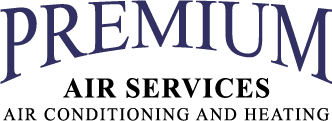
If you’re unsure whether your Tomball home has unhealthy indoor air quality (IAQ), it possibly does.
We are indoors a lot. As a matter of fact, we’re indoors up to 90% of the time, according to the U.S. Environmental Protection Agency. And the air inside houses could be 2–5 times more polluted than outdoors, which could create long-term health issues.
Most Common Causes of Poor IAQ
We’ve made a list of the most ordinary causes of bad IAQ, the troubles they cause and how you can fix these indoor air pollutants. If you’re troubled by the air inside your home, we advise consulting with a expert like Premium Air Services LLC about which products are a good fit for your family.
Volatile Organic Compounds
Volatile organic compounds, or VOCs, are vapors emitted from regular household items.
They’re found in paint and stains along with:
- Furniture
- Carpet
- Building materials
- Cleaning products
- Cosmetics
- Air fresheners
- Candles
When these fumes accumulate in your home, they might irritate your eyes, nose and throat. They might also lead to headaches and nausea. Regardless of whether your home is in a rural or industrial location, an EPA study found indoor levels of these fumes can be 2–5 times higher than the air outside your home.
Always follow the manufacturer’s guidelines when applying paint or spraying cleaning products. Cracking a window can help fumes disappear faster.
Air purification systems can also make it better. This equipment partners with your heating and cooling equipment to improve indoor air. When hunting for one, ensure it’s specifically made to eliminate VOCs.
Dust and Pet Dander
Dust and pet dander can irritate health problems like asthma and allergies, especially when it continuously gets moved by your house’s comfort unit. While you can vacuum more regularly and buy an improved air filter, an air filtration system might be a better solution.
This solution hooks to your HVAC equipment to give strong filtration. Some types provide hospital-level filtration for eliminating particles and bioaerosols.
Persistent Odors
Modern residences are securely sealed to enhance energy efficiency. While this is fantastic for your utility costs, it’s not ideal for your IAQ.
Musty odors can stay around for a greater amount of time since your residence is pulling in a smaller amount of fresh air. As keeping your windows open throughout the year isn’t a possibility, here are two ways you can make your indoor air smell better.
An air purification system is placed in your HVAC system to eliminate odors before they recirculate. Search for one with a carbon filter and the ability to wipe out dangerous VOCs. This equipment can also help keep your loved ones healthy by eliminating most bacteria and normal allergy triggers like pollen and mold spores.
A ventilation system removes stale indoor air and replaces it with crisp outdoor air. There are two types of units (heat recovery and energy recovery), so ask our professionals for more info on which type is right for your house.
Unsteady Humidity
It’s important your house’s humidity remains even. Air that has too much moisture can lead to mold, while dry air can cause respiratory concerns.
Our techs suggest 40–50% for top comfort. To keep yours steady, think over getting a whole-home humidifier or whole-home dehumidifier with your comfort equipment.
Rather than having to lug a humidifier from room to room, this solution delivers even humidity around your house.
Carbon Monoxide
Carbon monoxide is colorless gas you can’t smell. It’s caused by insufficient combustion in fuel-burning equipment, like gas heating systems, water heaters or fireplaces.
It causes a severe health risk. In low levels, it can lead to flu-like ailments like headaches and nausea. It may be lethal in heavy amounts.
We recommend annual furnace maintenance to ensure your system is working properly. This work allows our pros to discover troubles before they begin, including malfunctions that can lead to carbon monoxide leaks.
The best approach to keep your house free of carbon monoxide is to get detectors. These alarms should be on every floor near bedrooms and living areas.
Better Your House’s Air Quality with the Premium Air Services LLC Specialists
Informed that your home has inferior air quality but not sure how to make it better? Or unsure which solution is a good fit for you? Give our friendly HVAC professionals a call at 713-364-9957 or contact us online now. With free estimates and professional service, we’ll help you locate the right solution for your family and budget.
